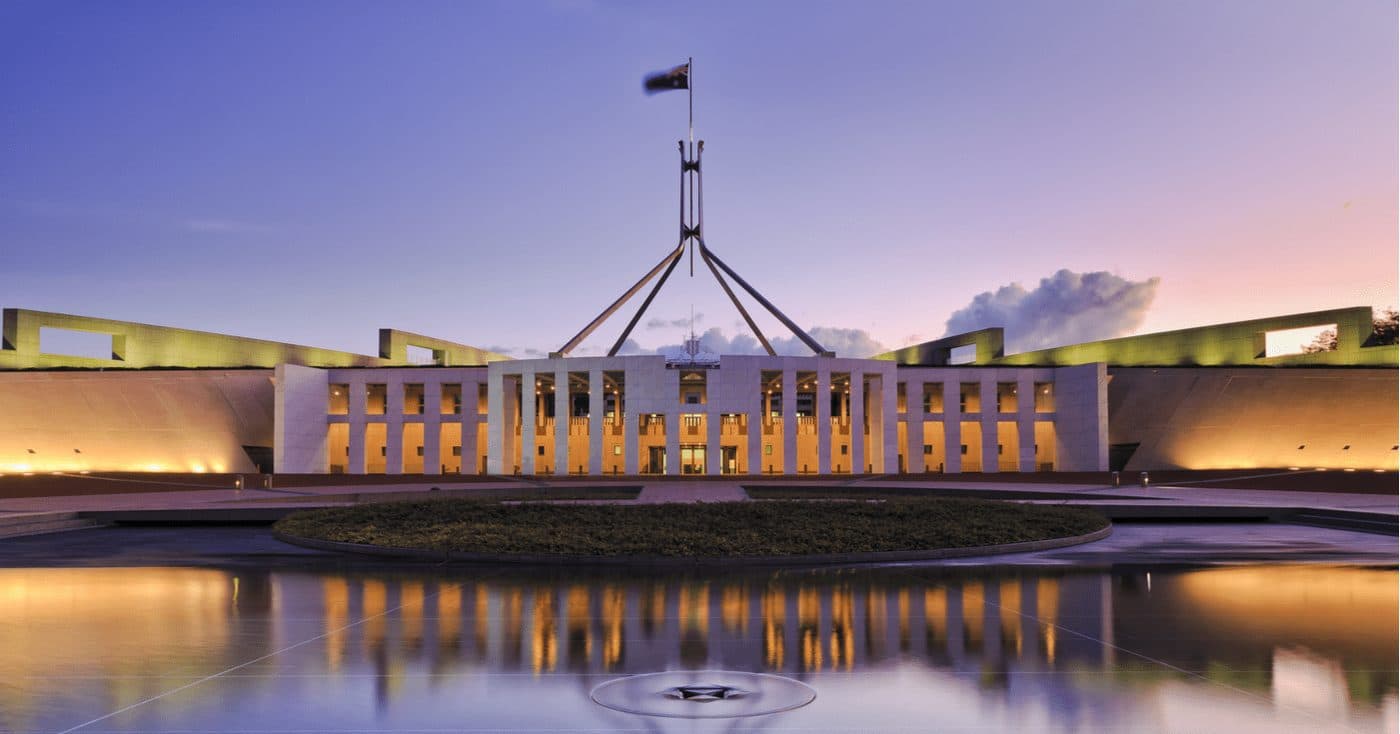Australia Seeks Licensing of Crypto Exchanges Via Digital Services Act
The Liberal Party of Australia is seeking industry feedback over its efforts to legislate a licensing regime for crypto exchanges

Australian Parliament in Canberra | Source: Shutterstock
- The proposed legislation is a consolidation of reforms set forth in a final report from a Senate Committee in December
- The Australian Government has announced its Digital Services Act, which seeks to regulate the budding crypto industry
Australia is pushing ahead with its plans to regulate digital assets and is seeking industry feedback on measures that focus on custody, DAOs, taxation, licensing and issues of industry debanking via the government’s Digital Services Act.
Calling for consolidation of reforms laid out in a final report of a Senate Committee last year, Australian Liberal Party Sen. Andrew Bragg said the Digital Services Act would provide greater regulatory oversight while dissuading businesses from exploring their options overseas.
“To do this would make Australia one of the only jurisdictions confronting this issue head-on, signalling that we fully appreciate the promise and potential of blockchain technology,” the senator said during his opening remarks at the country’s annual Blockchain Week.
The Senate Select Committee on Australia as a Technology and Financial Centre, which submitted its findings in a final report in December, received and reviewed a bevy of submissions and consulted on a number of issues with industry experts including certain instances of debanking of crypto businesses.
As part of its efforts, the government said Sunday it has released a consultation paper asking the industry to comment by the end of the month for its proposed cryptoasset licensing and custody measures. The paper also touches on the first stage of a token mapping exercise that is expected to be completed by the end of this year.
“We have been in active consultation with the federal government and agencies throughout this process and are very pleased to hear of a market licensing and custody requirement for Australia,” Caroline Bowler, CEO of crypto exchange BTC Markets, said. “This commitment pushes Australia into a leading position within a global regulatory environment and levels the playing field internationally.”
Crypto taxation is also a major focus of the government’s proposed legislative package which released the Terms of Reference on Sunday that tasks the country’s Board of Taxation with reviewing the nation’s crypto tax landscape.
The board will consider the current tax climate as it relates to digital assets, understand the characteristics of the nascent asset class, compare the existing framework to that of comparative jurisdictions and consider whether it would be appropriate to make any changes at all.
Its review, which is expected to be concluded no later than Dec. 31, is being conducted on the basis it would “not increase the overall tax burden” for investors, the government said.
Under the proposed tax reform, the Liberal Party is also seeking to bring DAOs (decentralized autonomous organizations) under the fold of the Corporations Act.
“Given that DAOs are recognised as partnerships, not companies, they are not liable to pay company tax,” the senator said. “DAOs are an existential threat to the tax base. They must be recognised and regulated as a matter of urgency.”
The upcoming federal election is expected to be called sometime before May 21 and will pit the incumbent party against its rival, the Australian Labor Party.
Get the news in your inbox. Explore Blockworks newsletters:
- The Breakdown: Decoding crypto and the markets. Daily.
- 0xResearch: Alpha in your inbox. Think like an analyst.






